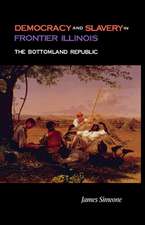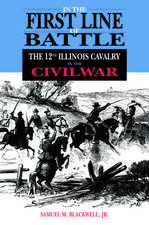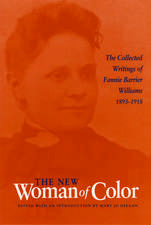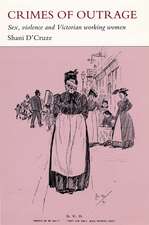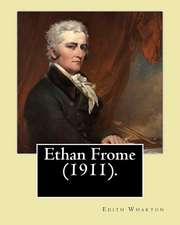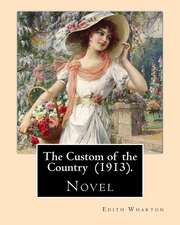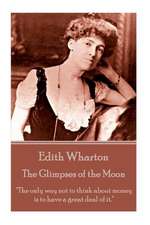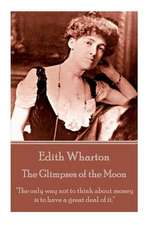A Son at the Front
Autor Edith Whartonen Limba Engleză Paperback – 14 iul 2019
| Toate formatele și edițiile | Preț | Express |
|---|---|---|
| Paperback (8) | 45.61 lei 3-4 săpt. | +16.93 lei 6-12 zile |
| Dover Publications Inc. – 29 iun 2023 | 45.61 lei 3-4 săpt. | +16.93 lei 6-12 zile |
| OUP OXFORD – 23 mar 2023 | 48.52 lei 10-17 zile | +18.29 lei 6-12 zile |
| Chicago Review Press Inc DBA Indepe – 13 dec 2020 | 51.71 lei 3-5 săpt. | |
| Bibliotech Press – 26 iul 2020 | 116.72 lei 6-8 săpt. | |
| Echo Library – 14 iul 2019 | 122.07 lei 38-45 zile | |
| Martino Fine Books – sep 2019 | 142.16 lei 38-45 zile | |
| Cullen Press – 9 ian 2013 | 214.68 lei 6-8 săpt. | |
| Northern Illinois University Press – 31 aug 1995 | 216.76 lei 6-8 săpt. | |
| Hardback (2) | 137.32 lei 3-5 săpt. | |
| Mint Editions – sep 2020 | 137.32 lei 3-5 săpt. | |
| Northern Illinois University Press – 31 aug 1995 | 723.03 lei 6-8 săpt. |
Preț: 122.07 lei
Nou
Puncte Express: 183
Preț estimativ în valută:
23.36€ • 24.39$ • 19.33£
23.36€ • 24.39$ • 19.33£
Carte tipărită la comandă
Livrare economică 31 martie-07 aprilie
Preluare comenzi: 021 569.72.76
Specificații
ISBN-13: 9781406892369
ISBN-10: 140689236X
Pagini: 216
Dimensiuni: 152 x 229 x 12 mm
Greutate: 0.32 kg
Ediția:Reprint of an E
Editura: Echo Library
ISBN-10: 140689236X
Pagini: 216
Dimensiuni: 152 x 229 x 12 mm
Greutate: 0.32 kg
Ediția:Reprint of an E
Editura: Echo Library
Notă biografică
>Julie Olin-Ammentorp is Professor of English at Le Moyne College (Syracuse, NY). She is the author of Edith Wharton, Willa Cather, and the Place of Culture (2019) and Edith Wharton's Writings from the Great War (2004), as well as of many articles and book chapters, including essays in The Bloomsbury Handbook to Edith Wharton (ed. Emily Orlando, 2022) and The New Edith Wharton Studies (ed. Jennifer Haytock and Laura Rattray, 2020). She is a past president of the Edith Wharton Society and serves on the editorial board of The Edith Wharton Review.
Descriere
Descriere de la o altă ediție sau format:
'The war went on; life went on; Paris went on.'In A Son at the Front, her only novel dealing with World War I, Edith Wharton offers a vivid portrait of American expatriate life in Paris, as well as a gripping portrayal of a complex modern family. The painter John Campton is divorced from the mother of his son, George, and although Julia's second husband, Anderson Brant, a wealthy banker, has been a devoted stepfather to George, Campton resents his presence in George's life. This family drama is ruptured by the outbreak of fighting, which requires George, born in France, to report for military service despite his parents' belief that he should be exempted.Reflecting Wharton's own experiences, A Son at the Front documents the shock of the outbreak of war, the early hope of a quick victory for the Allies, the terrible human cost of the war, and the relief when, belatedly, the United States enters the conflict. The novel's tone reflects the realities of life in Paris, and the profound disillusionment of the post-war period, standing as not only an important part of Wharton's oeuvre, but a landmark in the literature of the First World War.
'The war went on; life went on; Paris went on.'In A Son at the Front, her only novel dealing with World War I, Edith Wharton offers a vivid portrait of American expatriate life in Paris, as well as a gripping portrayal of a complex modern family. The painter John Campton is divorced from the mother of his son, George, and although Julia's second husband, Anderson Brant, a wealthy banker, has been a devoted stepfather to George, Campton resents his presence in George's life. This family drama is ruptured by the outbreak of fighting, which requires George, born in France, to report for military service despite his parents' belief that he should be exempted.Reflecting Wharton's own experiences, A Son at the Front documents the shock of the outbreak of war, the early hope of a quick victory for the Allies, the terrible human cost of the war, and the relief when, belatedly, the United States enters the conflict. The novel's tone reflects the realities of life in Paris, and the profound disillusionment of the post-war period, standing as not only an important part of Wharton's oeuvre, but a landmark in the literature of the First World War.
Recenzii
"Extraordinarily poignant.... Heartrending, tragic, powerful, this is not to be missed."—Publishers Weekly
"Wharton has done nothing that equals this."—New York Times Book Review (1923)
"Wharton has painted a moving landscape."—War, Literature & the Arts
"Wharton has done nothing that equals this."—New York Times Book Review (1923)
"Wharton has painted a moving landscape."—War, Literature & the Arts
Cuprins
Table of Contents
Introduction by Shari Benstock
Book One: Chapters I–IX
Book Two: Chapters X–XXIII
Book Three: Chapters XXIV–XXXI
Book Four: Chapters XXXII–XXXVI
Book One: Chapters I–IX
Book Two: Chapters X–XXIII
Book Three: Chapters XXIV–XXXI
Book Four: Chapters XXXII–XXXVI




